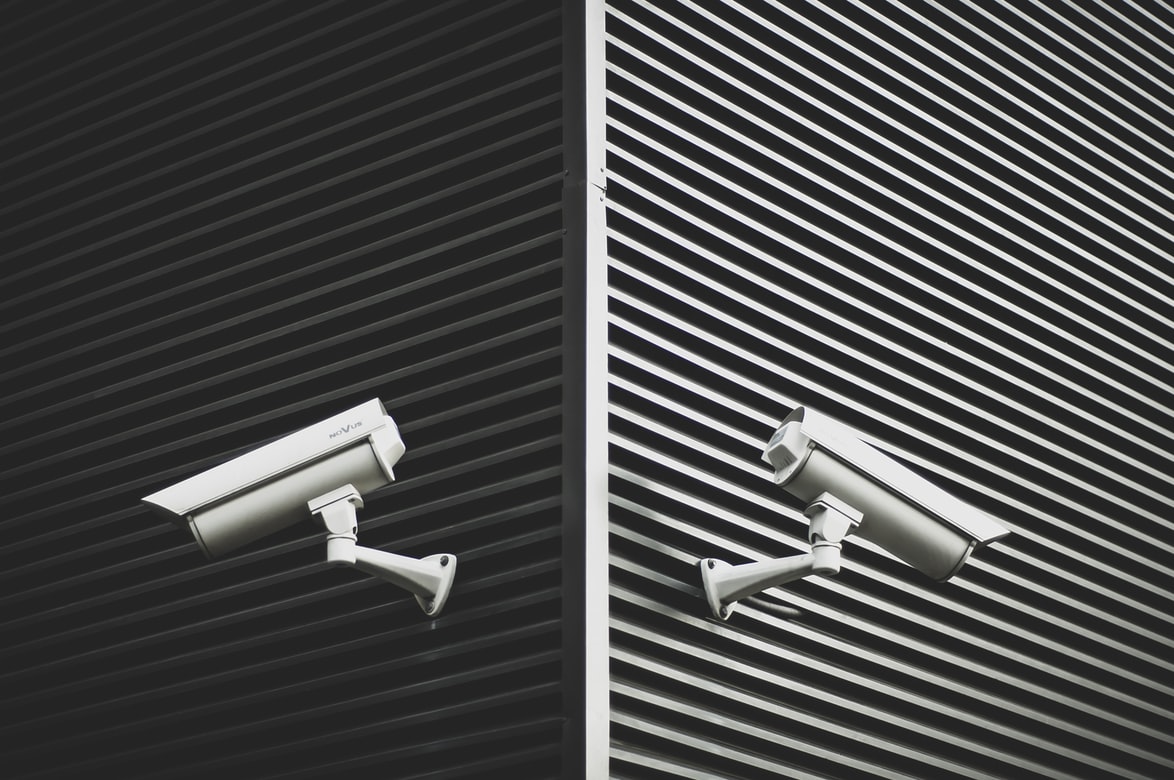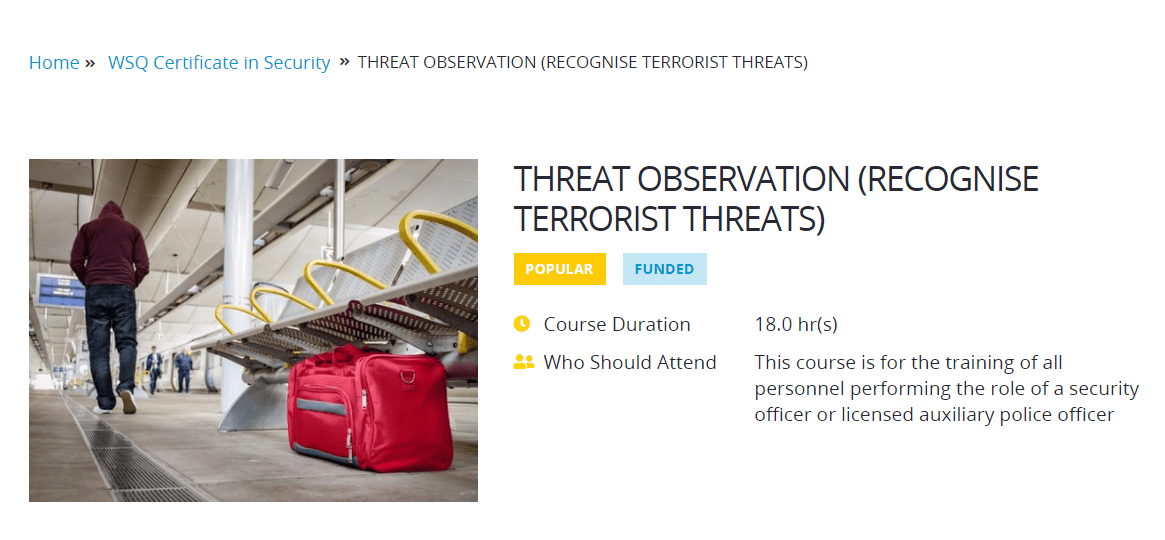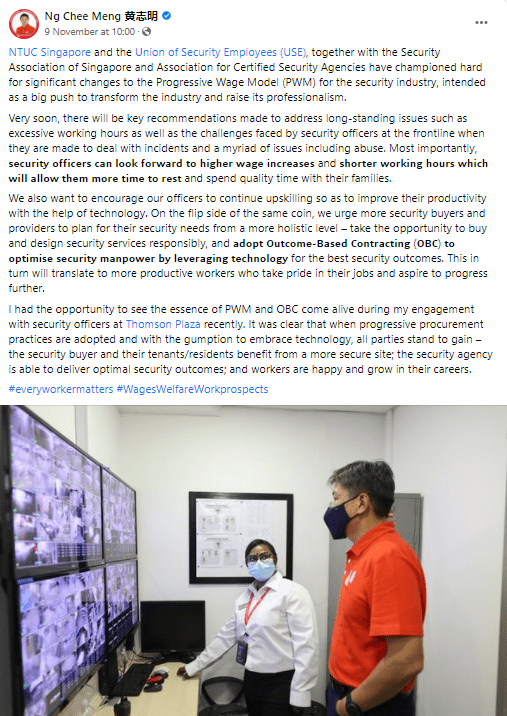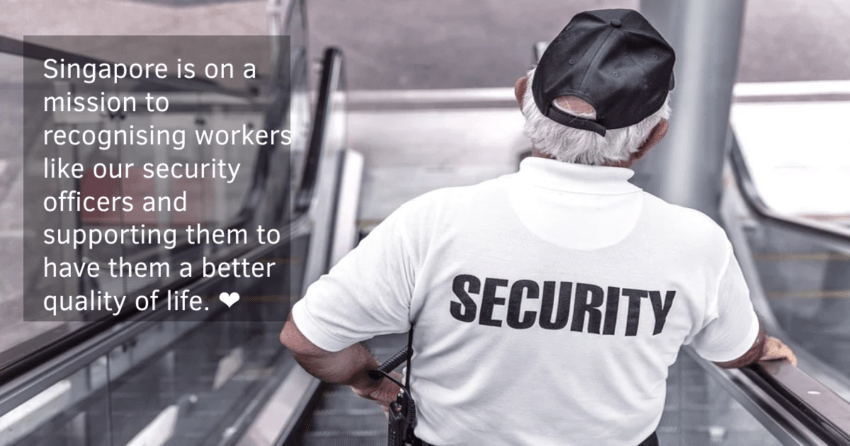It’s not often that we hear monthly wages doubling for a specific job role. Yet, this was exactly what happened in November 2021 when the Government announced that the baseline wages of security officers will increase to S$3,530 by 2028. This comes after recommendations were put forth by the Security Tripartite Cluster, which is made up of representatives from the unions, industry associations and the Government.
Raising — even doubling — the monthly wages of security officers makes a lot of sense. Working throughout the COVID-19 pandemic is one thing, but these security officers are sometimes overworked — even abused by members of the public for doing their jobs. In all honesty, security officers more than deserve a pay raise after years of working behind the scenes, being the unsung heroes in our society and tolerating the nonsense that some members of the public have put them through — but more on that later.
Here’s a shout out to security officers, and all the things they do for us.
Basic Level: Security officers are the caretakers of our properties

Their job title says it all. The basic job of a security officer is to secure your premises by patrolling, monitoring surveillance equipment, performing building inspections, guarding entry points and verifying visitors. On top of that, they are often the first-responders to the scene, whether someone is trapped in a lift, a faulty gantry is causing a traffic jam in the carpark or there is an electric scooter on fire. Your friendly neighbourhood security officer is usually the first person on the scene.
Besides, just because Singapore has a low crime rate doesn’t mean there are no crimes. For example, with nothing better to do, some Singaporeans are constantly trying to sneak into places they are not authorised to enter, for criminal reasons or otherwise. There’s that now-infamous teenager who jumped the fence at the zoo for a TikTok stunt (among other crimes); these teenagers who snuck their fixed-gear bicycles into Jewel Changi Airport for a joyride; there’s this man who had a personal vendetta against the Virgin Mary; there’s this group of hungry people who just wanted to eat some free durians in the middle of the night.
Sure, most of these are isolated cases. Some might even argue that security cameras are more than enough to do the job. However, when there is a fire or an active break in happening, are the security cameras going to put out the fire or give chase to the criminals? Yeah, we didn’t think so. We need security officers on the ground, because they are still the best first line of defence.
Intermediate Level: They help to curb the spread of COVID-19
Technically speaking, you can hire a private security officer to help maintain a safety distance between you and members of the public (“You are less than a metre from my client! Back off!”) — but that’s just overkill. Besides, that’s not really how everyday security officers help to curb the spread of COVID-19.
Since the pandemic began, we’ve already heard numerous cases of people gathering in big groups — most notoriously in KTV lounges — and against social gathering restrictions. KTV lounges aside, people have been gathering en masse for birthday parties, countdown parties, wedding anniversary parties, yacht parties — you name it. The vast majority Singaporeans have been more than responsible, but some cannot help but scratch that party itch, it seems.
That’s where security officers come in. Aside from checking our vaccination status and taking down names at entrances to various premises, security officers are also making mental notes of how many people are entering the premises at any one time. Trying to sneak in an extra guest for a house visit?
“Sorry, you cannot do that. Social gathering measures are still in place. Please leave. Now. Or I will call the police. Thank you very much.”
Advanced Level: They help to prevent terrorism
Security officers aren’t just patrolling airports and shopping malls to look for petty shoplifters — although they are more than happy to chase them down with batons if need be. Many of them, especially trained security officers, are also there to look out for potential terrorist activities.
A security officer trained to recognise terrorist threats sees the world in a completely different light. It’s like a superpower that everyday Singaporeans do not have. For example, what looks like a dustbin near a MRT station may be the perfect hiding spot for an explosive device; that van with bad suspension may very well be a vehicle carrying a heavy explosive payload — the possibilities are endless. Remember live concerts and how security officers would line up at entrances to shine flashlights into our bags? They weren’t just doing that out of curiosity. They were actively looking out for our safety and security.
Not every security officer does this, of course, but there are courses available to help them ‘level up’, so to speak. Recognise Terrorist Threats courses train security officers to identify suspicious activities through behavioural profiling, as well as handle situations involving suspicious people, objects, vehicles and powders.

A path to a better life
Security guards are not the only ones receiving a well-deserved pay raise, either. In late October 2021, the National Wages Council released a progressive wage growth guideline, recommending lower-wage workers earning up to S$2,000 gross monthly income, which includes security officers and cleaners, to get a pay hike of S$70 to S$90, or a 4.5% to 7.5% raise if it is higher.
A pay raise is one thing, but this is also about recognising security officers and giving them a better quality of life. Ng Chee Meng, secretary-general of the National Trades Union Congress, said it best in a recent Facebook post, “Very soon, there will be key recommendations made to address long-standing issues such as excessive working hours, as well as the challenges faced by security officers at the frontline when they are made to deal with incidents and a myriad of issues including abuse. Most importantly, security officers can look forward to higher wage increases and shorter working hours, which will allow them more time to rest and spend quality time with their families.”

